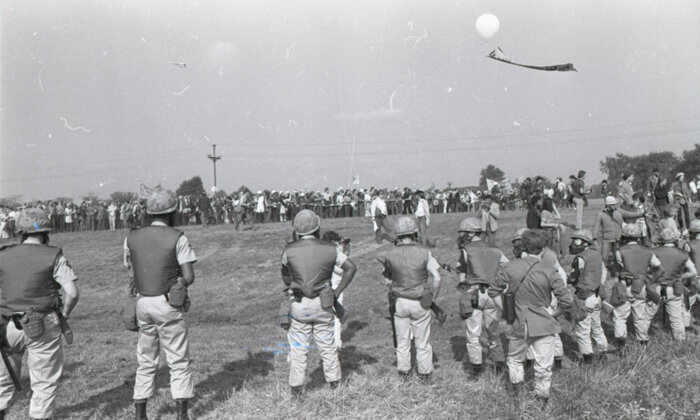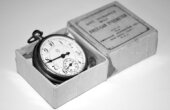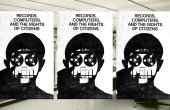Of War, Collective Trauma, and the Coronavirus Crisis

As was the case with other American conflicts and crises in the 20th century, the fallout from the Vietnam War helped redefine the role of psychiatry and society’s perception of mental health. It was an era of transition, and even fear, with American society fractured by protests, a rights revolution on the home front, and hostilities abroad. Nearly 50 years after the war’s end, it’s worth asking, amidst our own crisis, what lessons can we draw from the Vietnam era?
The conflict in Vietnam gripped the hearts and minds of the American public, just as it impacted soldiers in Southeast Asia. It contributed to what historian Ben Shepherd has called a new “consciousness of trauma” in the United States and beyond. A mere five years after the fall of Saigon in 1975, a new psychiatric term was introduced, tailored to the needs of veterans: post-traumatic stress disorder (PTSD). In 1990, an epidemiological survey concluded that 480,000 (15 percent) of the 3.15 million Americans who had served in Vietnam were suffering from service-related PTSD. In addition, between a quarter and a third (nearly one million ex-service personnel) displayed symptoms of PTSD at one time or another.

Amid the crisis, there was a mixture of optimism and skepticism, and a struggle, not unlike the one we’re seeing now, between engagement and denial. According to some military psychiatrists, the field had interceded early and often enough to prevent widespread trauma. In psychiatrist Peter Bourne’s 1970 book “Men, Stress, and Vietnam,” he attributed the initially low rate of breakdown among American troops in Vietnam to interventionist psychiatry. A sufficient and appropriate amount of actions had been taken, he felt. Bourne was so positive about early successes that he thought there was “reason to be optimistic that psychiatric casualties need never again become a major cause of attrition in the United States military in a combat zone.”
But Bourne’s rosy outlook was met with opposition. Michael S. Perlman, a psychiatrist in the U.S. Naval Disciplinary Command, a maximum-security prison in Portsmouth, New Hampshire, was consistently exposed to the manifestation of chronic psychiatric symptoms he believed were a result of the war. Yet when he sought advice from his colleagues, Perlman was surprised to find that “almost from the beginning, I was given the impression that I had poked my nose into something forbidden.” He was told he was “being conned” by those he treated or that his “antiwar sentiments” were overly influencing him. In other words, Perlman was being gaslighted. He was bewildered by such a response, craved an objective and scientific approach on the part of his colleagues, and concluded that a “definite syndrome was being overlooked” on a broad scale.
The outcome was that hard reality was often obscured, which ultimately caused more harm than good.
He argued that the psychiatrist’s proper role was to “recognize and communicate hard reality, however painful that truth” happened to be. But this basic principle was under threat when psychiatrists aligned themselves with an institution, whether it was an outpatient psychiatric clinic, a private office, or the military, rather than with the patient. While Perlman rejected the idea of any conscious pressure in the Navy to subvert psychiatry, he concluded that the pressures to compromise professional integrity were more “subtle, unconscious and related to a naturally adopted character styles and defenses.” The outcome was that hard reality was often obscured, which ultimately caused more harm than good.
As bombings increased and South Vietnamese forces burgeoned, self-proclaimed radicals in the psych disciplines across the country charged some of their peers with collusion. Some, including sociologist Phil Brown, argued that psychiatrists and psychologists were “polish[ing] the machinery of U.S. imperialism in Indochina and elsewhere.” Radicals were asserting that mainstream psychiatrists were legitimizing the war in Southeast Asia. Others, by contrast, criticized their contemporaries for failing to think about the long-term dangers of inaction to Americans’ mental health.
As the Vietnam War drew to a close in 1975, the rise of veterans’ groups such as Vietnam Veterans Against the War highlighted the troubling socioeconomic conditions in the United States. Unlike their World War I and World War II counterparts, many servicemen returned to the States to find protests and civilian disgust at their participation. Economic stratification was more palpable — a Great Divide, as economist Joseph Stiglitz has called it, was growing within the country. The gap between the “haves” and “have-nots” was on the rise.
The Vietnam War proved instrumental in sparking a new level of awareness regarding mental health during times of war and led as well to fresh diagnostic approaches to mental trauma. For historian Adam Montgomery, “it seems that trauma is everywhere.” From soldiers to emergency medical workers, he argues, we now routinely hear about PTSD after natural disasters, car or train accidents, sexual assault, and even war journalism.
How will the anxiety and isolation that follows from Covid-19 impact American mental health? It’s anyone’s guess. What we know is that the crisis has driven up restrictive measures and political rhetoric, even as markets have plunged downward. And current discussions about coronavirus trauma clearly echo those that followed the Vietnam War: the need for clear-eyed recognition of a health problem and an evidence-based approach; the suitable concentration of medical and financial resources at both the federal and state levels; and concerns about returning home after being abroad.
Indeed, Americans are undergoing a collectively traumatic experience, much like in the Vietnam War years. A solid dose of hard reality, as Michael Perlman argued, will be crucial to understand what they’ll face in the years ahead.
Lucas Richert is George Urdang Chair in the History of Pharmacy at the University of Wisconsin–Madison. He is the author of “Break On Through” and “Strange Trips,” and co-editor-in-chief of Social History of Alcohol and Drugs: An Interdisciplinary Journal.
Elements of this article were drawn from “Break On Through: Radical Psychiatry and the American Counterculture.”



